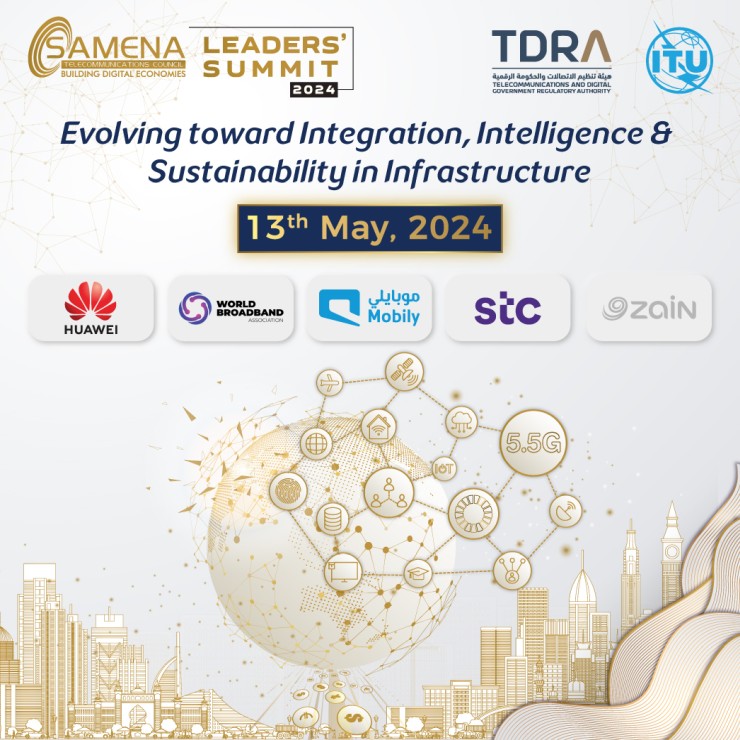By attaining active telephone line connectivity of over 134 million and a teledensity of 96 percent, Nigeria's telecoms market has continued to become toast of international investors.
Just recently at the just concluded ITU Telecom World 2014 held in Doha, the Minister of Communication Technology, Dr Omobola Johnson who led the Nigerian delegation to the forum highlighted the potentials of the Nigeria's ICT sector's growth to international investors
For Johnson , Nigeria presents a large market for discerning operators to come in to invest despite challenges.
Nigeria as veritable platform
For one thing, the ITU Telecom World 2014 after four days of intensive debates, discussions and networking presented Nigeria with a veritable platform to highlight it's strength despite its challenges as well as the phenomenal growth being recorded in the ICT sector.
Speaking to the the international audience, the Minister urged investors that are already cognisant of Nigeria's ICT sector's potentials to continue to invest and called on others still watching the investment climate to invest because they consider Nigeria to be unstable to invest.
At the event, Johnson unveiled Nigeria to the global community as the most populous country and biggest economy in Africa currently taking steps to diversify her economy with clear results becoming noticeable in key non-oil sectors such as Agriculture, Power, Manufacturing and ICTs.
She said that Nigeria remains one of the top three destinations for foreign direct investments (FDI) in Africa.
Between 2007 till 2013, according to her, Nigeria recorded more than 50% FDI capital invested into capital intensive resource sectors, while 50% of FDI projects are service oriented with the telecommunications sector experiencing strong growth attracting 24% of FDI projects.
ITU eulogizes Nigeria Broadband policy
Excited by the Nigeria's investment potentials, the newly elected Secretary General of the ITU, Mr Houlin Zhao who was on hand to support Nigeria, commended Nigeria's ICT sector growth.
Zhao eulogized Nigeria on its Broadband policy initiatives and successes recorded in the ICT sector. He particularly singled out Nigeria deploying 4G for commercial services- a feat that he stressed had put the country ahead of much of Europe and China.
Similarly, the Executive Vice Chairman of the Nigerian Communications Commission, NCC, Dr Eugene Juwah while also highlighting Nigeria's ICT growth reiterating that Nigeria has witnessed phenomenal growth in subscriber numbers- achieving almost 100% teledensity ratio with active subscriber numbers exceeding 134 million.
Open access model
He emphasized that President, Goodluck Jonathan has approved an inclusive national implementation plan to enable nationwide pervasive broadband deployment. He added that the Open Access Model that is being adopted by the Nigerian Government allows for inclusive, fair and transparent licensing processes as well as incentives for investors in the ICT industry.
An Investment Forum was also held at the ITU to showcase Nigeria's ICT growth and success stories of investors that are already investing in Nigeria.
Johnson updated participants at the ITU Telecom World with the policies and initiatives that have been unveiled by the Ministry to accelerate Nigeria's transformation into a digital economy leveraging ICTs. One of such is the National Broadband Plan which is currently being implemented with the goal of increasing broadband penetration rate from 6% to 30% by 2018.
Johnson in a panel session titled "A Regulators Nightmare" emphasised the commitment of the Federal Government to providing an enabling environment that will transform Nigeria into a digital economy.
She informed other panelists and participants that there were four things that keep her team awake at night.
"One is the need to balance intervention with market forces, second-is trying to build a digital economy in a scenario where the telcos are currently only concentrating in the big cities and third- is achieving balance within all aspects of the spectrum, while the fourth - is deciding who is best placed to regulate mobile money / digital currency" she said.
She emphasised that in addressing the 'Regulators nightmare,' Regulators need to participate in the entire ecosystem of the telecommunications industry, in order to keep up. This is crucial, especially in a telecoms environment where according to the ITU-market innovation is significantly outpacing policy creation- no doubt a recipe for the regulators Nightmare'.
The panelists in their different submissions agreed with Johnson that the solution to addressing the Regulators Nightmare is for the need have a balance between intervention and market forces.
